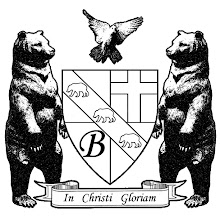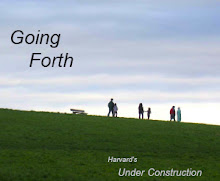 When I first read G. K. Chesterton's Orthodoxy in November, I remarked that it was a book that would bear repeat readings over the years. Well, I think I underestimated my enthusiasm for this book. In the five months since my initial reading, I have already re-read the book and listened to it in audiobook form. (Please do yourself a favor and download the free audiobook here. I promise you will not regret the investment of six hours of your life.)
When I first read G. K. Chesterton's Orthodoxy in November, I remarked that it was a book that would bear repeat readings over the years. Well, I think I underestimated my enthusiasm for this book. In the five months since my initial reading, I have already re-read the book and listened to it in audiobook form. (Please do yourself a favor and download the free audiobook here. I promise you will not regret the investment of six hours of your life.)Chesterton wrote Orthodoxy in 1908, so it's 100 years old this year. Some people say it's the best book of the 20th century. Now, not having read all the books written in the 20th century, I'm in no position to comment on the veracity of that rather sweeping claim, but I will take a stand and say that Orthodoxy is at least the greatest book I have ever read. As far as I'm concerned, it's the perfect book -- short, funny, thought-provoking, and utterly brilliant.
It's a cliché to observe that Chesterton's writing is as fresh and relevant today as it was 100 years ago, but it's so true that I'll risk the cliché. Chesterton understood everything. His vision penetrated to the heart of every intellectual fashion and cultural trend of his time, and he saw with seemingly prescient clarity how such trends would play out in the long run. He understood the year 2008 better than most people today do. Change out a few of the names and specific cultural references, and you'd think the book was written last month.
If I let myself get going, I could quote dozens of favorite passages, but for now I'll just give you one that never fails to make me smile. It's from Chapter 4: The Ethics of Elfland:
"All the towering materialism which dominates the modern mind rests ultimately upon one assumption; a false assumption. It is supposed that if a thing goes on repeating itself it is probably dead; a piece of clockwork. People feel that if the universe was personal it would vary; if the sun were alive it would dance. This is a fallacy even in relation to known fact. For the variation in human affairs is generally brought into them, not by life, but by death; by the dying down or breaking off of their strength or desire. A man varies his movements because of some slight element of failure or fatigue. He gets into an omnibus because he is tired of walking; or he walks because he is tired of sitting still. But if his life and joy were so gigantic that he never tired of going to Islington, he might go to Islington as regularly as the Thames goes to Sheerness. The very speed and ecstacy of his life would have the stillness of death. The sun rises every morning. I do not rise every morning; but the variation is due not to my activity, but to my inaction. Now, to put the matter in a popular phrase, it might be true that the sun rises regularly because he never gets tired of rising. His routine might be due, not to a lifelessness, but to a rush of life. The thing I mean can be seen, for instance, in children, when they find some game or joke that they specially enjoy. A child kicks his legs rhythmically through excess, not absence, of life. Because children have abounding vitality, because they are in spirit fierce and free, therefore they want things repeated and unchanged. They always say, 'Do it again'; and the grown-up person does it again until he is nearly dead. For grown-up people are not strong enough to exult in monotony. But perhaps God is strong enough to exult in monotony. It is possible that God says every morning, 'Do it again' to the sun; and every evening, 'Do it again' to the moon. It may not be automatic necessity that makes all daisies alike; it may be that God makes every daisy separately, but has never got tired of making them. It may be that He has the eternal appetite of infancy; for we have sinned and grown old, and our Father is younger than we. The repetition in Nature may not be a mere recurrence; it may be a theatrical encore. Heaven may encore the bird who laid an egg. If the human being conceives and brings forth a human child instead of bringing forth a fish, or a bat, or a griffin, the reason may not be that we are fixed in an animal fate without life or purpose. It may be that our little tragedy has touched the gods, that they admire it from their starry galleries, and that at the end of every human drama man is called again and again before the curtain. Repetition may go on for millions of years, by mere choice, and at any instant it may stop. Man may stand on the earth generation after generation, and yet each birth be his positively last appearance."


1 comment:
I've been reading about a chapter at a time when I get the chance, and I definitely like it also. Last chapter I read I had some thoughts brewing I wanted to share, but I'll have to wait on that until I can get back to it.
Post a Comment